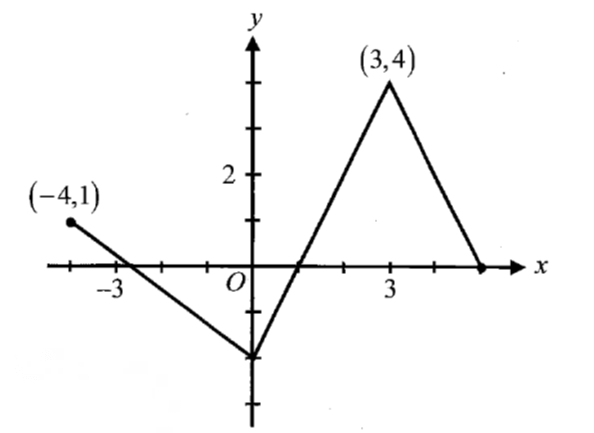FIND GCD OF TWO POLYNOMIALS USING DIVISION METHOD
Step 1 :
First, divide f(x) by g(x) to obtain.
f(x) = g(x)q(x)+ r(x)
where q(x) is the quotient and r(x) is remainder,
so, deg (g(x)) > deg (r(x))
If the remainder r(x) is 0, then g(x) is the GCD of f(x) and g(x).
Step 2 :
If the remainder r(x) is non-zero, divide g(x) by r(x) to obtain.
g(x) = r(x) q(x)+ r1(x)
where r1(x) is the remainder.
So, deg r(x) > deg r1(x)
If the remainder r1(x) is 0, then r(x) is the required GCD.
Step 3 :
If r1(x) is non-zero, then continue the process until we get zero as remainder.
The remainder in the last but one step is the GCD of f(x) and g(x).
We write GCD(f(x), g(x)) to denote the GCD of the polynomials f(x) and g(x).
Example :
Find the GCD of the following pairs of polynomials using division algorithm
(i) x3-9x2+23x-15 and 4x2-16x+12
(ii) 3x3+18x2+33x+18, 3x2+13x+10
(iii) 2x3+2x2+2x+2, 6x3+12x2+6x+12
(iv) x3-3x2+4x-12, x4+x3+4x2+4x
(i) Answer :
x3-9x2+23x-15 and 4x2-16x+12
Let f(x) = x3-9x2+23x-15 and
g(x) = 4x2-16x+12
g(x) = 4(x2-4x+3)
Here, deg(f(x)) > deg (g(x))
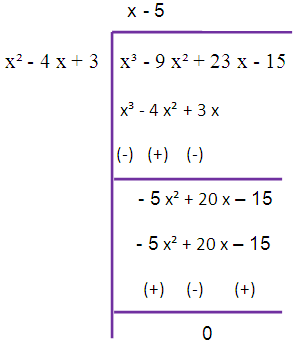
By dividing f(x) by g(x), we get 0 as remainder. So, the required GCD is x-5.
(ii) Answer :
3x3+18x2+33x+18, 3x2+13x+10
Let f(x) = 3x3+18x2+33x+18 and g(x) = 3x2+13x+10
Here, deg f(x) > deg g(x)
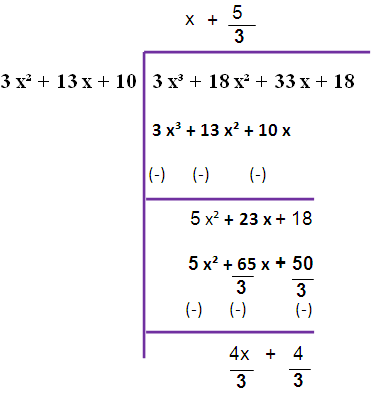
By dividing f(x) by g(x) we are not getting zero. So, we have to do this long division once again.
Now we are taking 4/3 as common from the remainder. So that we are getting (4/3)(x+1)
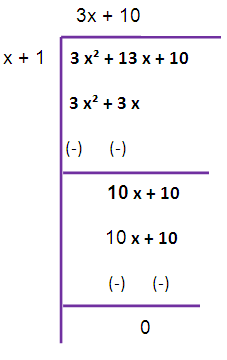
So, the greatest common divisor is x+1.
(iii) Answer :
2x3+2x2+2x+2, 6x3+12x2+6x+12
Let f(x) = 2x3+2x2+2x+2 and g(x) = 6x3+12x2+6x+12
f(x) = 2(x3+x2+x+1)
g(x) = 6(x3+2x2+x+2)
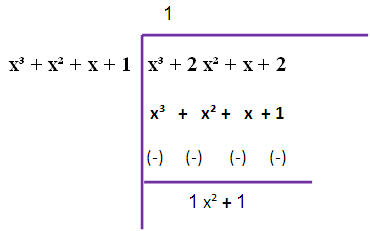
Since we are not getting zero, we have to do this long division once again
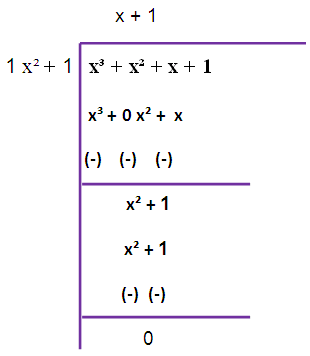
So, the required GCD is 2 (x2+1).
(vi) Answer :
x3-3x2+4x-12, x4+x3+4x2+4x
Let f(x) = x3-3x2+4x-12 and g(x) = x4+x3+4x2+4x
f(x) = x3-3x2+4x-12
g (x) = x(x3+x2+4x+4)
Here, deg (f(x)) = deg (g(x))
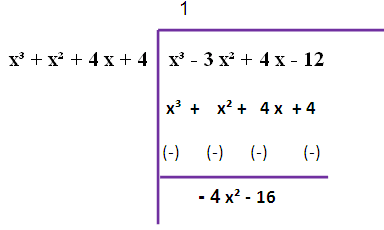
Since we are not getting zero, we have to do this long division once again
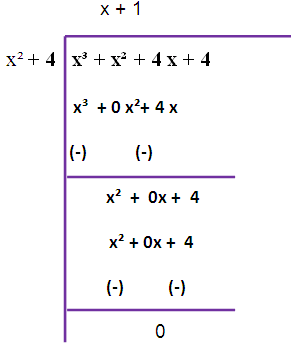
So, the required GCD is (x2+4).
Kindly mail your feedback to v4formath@gmail.com
We always appreciate your feedback.
©All rights reserved. onlinemath4all.com
Recent Articles
-
Linear Inequality Word Problems with Solutions
Jan 11, 25 07:52 AM
Linear Inequality Word Problems with Solutions -
SAT Math Resources (Videos, Concepts, Worksheets and More)
Jan 10, 25 05:08 AM
SAT Math Resources (Videos, Concepts, Worksheets and More) -
Digital SAT Math Problems and Solutions (Part - 98)
Jan 10, 25 05:02 AM
Digital SAT Math Problems and Solutions (Part - 98)
